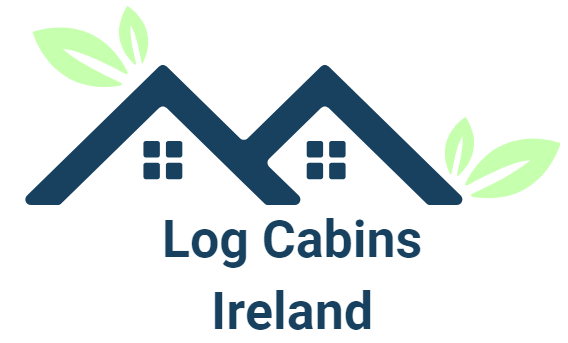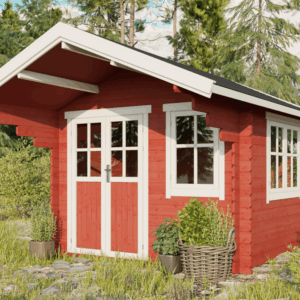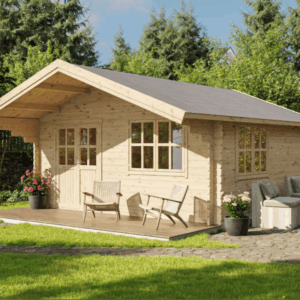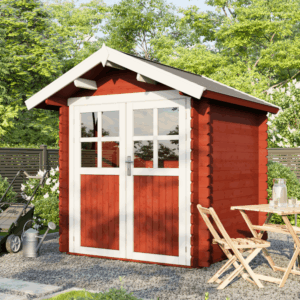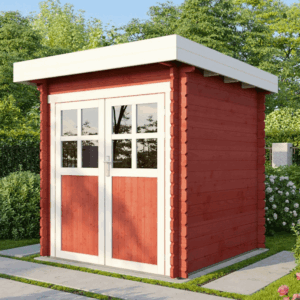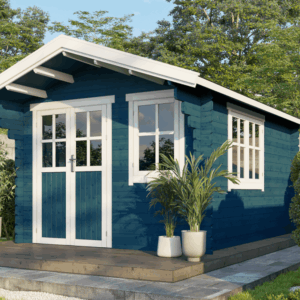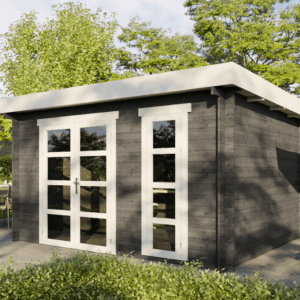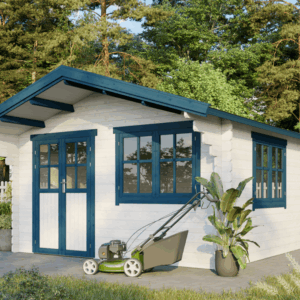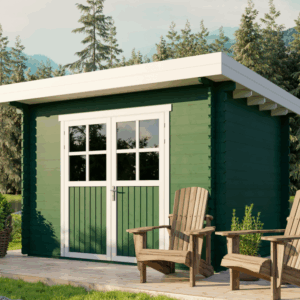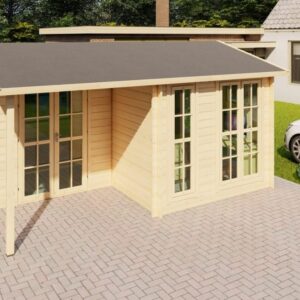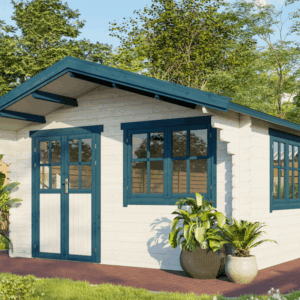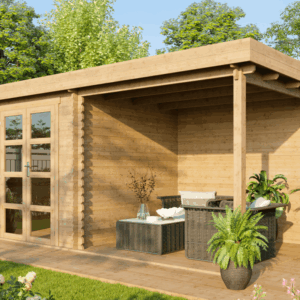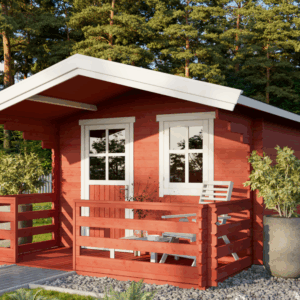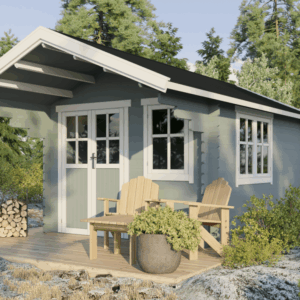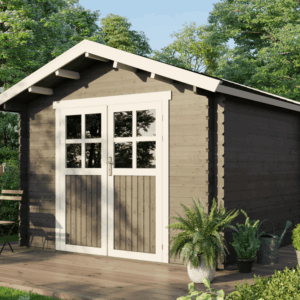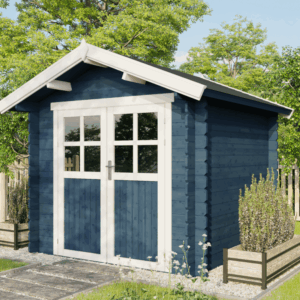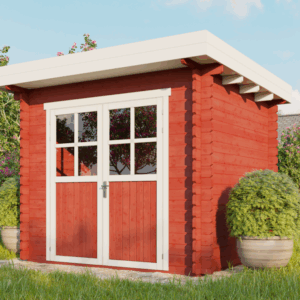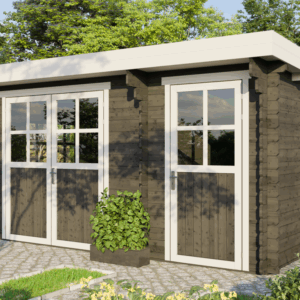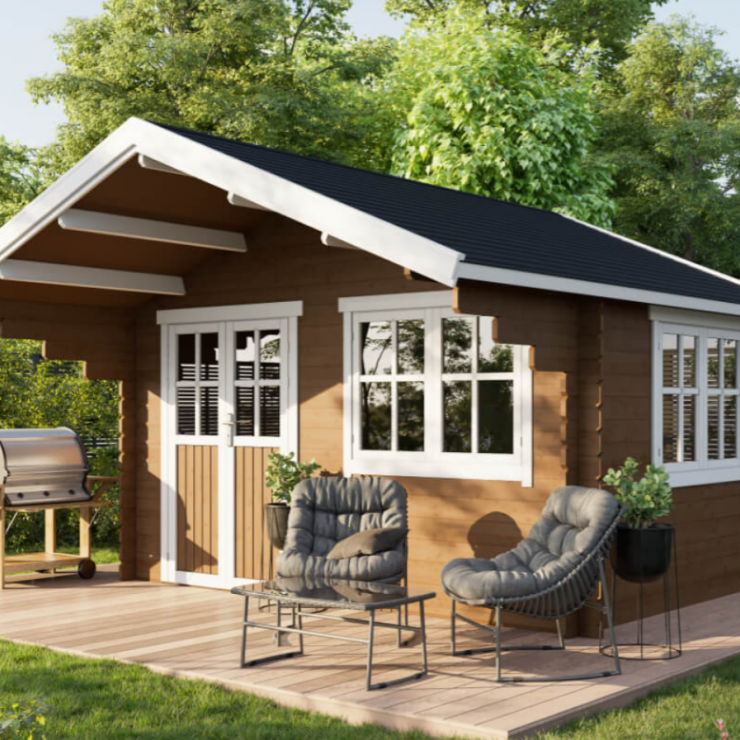Imagine waking up to the gentle call of a curlew, the mist clinging to ancient hills, and the scent of peat fires in the air. For many, the dream of owning a piece of Ireland’s breathtaking landscape is a powerful one. Beyond the picturesque cottages and sprawling estates, the allure of a traditional Irish lodge offers a unique blend of rustic charm, historical character, and a profound connection to nature. This guide is designed to be your compass, navigating the exciting, yet sometimes complex, journey of finding and purchasing lodges for sale in Ireland.
Whether you envision a secluded retreat nestled in a forgotten glen, a grander sporting lodge with ample grounds for equestrian pursuits, or a charming riverside property ideal for fishing, Ireland presents a diverse array of lodge-style homes. These properties often possess a distinct architectural heritage, drawing from centuries of Irish building traditions. Understanding the market, the types of lodges available, and the practicalities of the buying process is crucial to turning your dream into a tangible reality.
This extensive exploration will delve into the captivating world of Irish lodges, covering everything from identifying prime locations and understanding property types to navigating legalities and making your offer. We aim to equip you with the knowledge and confidence to embark on this incredibly rewarding adventure, securing your own slice of the Emerald Isle to cherish for generations to come.
Discovering Your Ideal Irish Lodge: Types and Locations
The term “lodge” in Ireland can encompass a wide spectrum of properties, each offering its own unique appeal. At its core, an Irish lodge often evokes a sense of being at one with the surrounding environment, be it rugged coastline, rolling countryside, or tranquil forests. You might find grander, estate-style lodges built for sporting pursuits, featuring spacious interiors and extensive grounds for hunting, shooting, or fishing. These are often found in more rural and remote settings, offering unparalleled privacy and a connection to a more traditional way of life.
Alternatively, a smaller, more intimate lodge might be a charming, often stone-built, cottage or bungalow located by a lake, river, or within a woodland setting. These are perfect for those seeking a peaceful weekend escape or a cozy permanent residence. Many of these smaller lodges have been lovingly restored, blending original features with modern comforts, ensuring a comfortable and characterful living experience. Their appeal lies in their simplicity and their direct engagement with the natural beauty of their surroundings.
When considering locations for lodges for sale in Ireland, the possibilities are as varied as the landscape itself. For dramatic coastal vistas and a sense of wild beauty, the west coast counties like Galway, Clare, and Donegal are exceptional choices. These areas offer opportunities for lodges with sea views, proximity to stunning beaches, and access to vibrant traditional Irish culture. The wild Atlantic way provides a breathtaking backdrop for any property.
Inland, counties like Wicklow, known as the “Garden of Ireland,” offer lush valleys, ancient forests, and rolling hills, ideal for lodges seeking a more pastoral setting. The border counties also hold a wealth of hidden gems, with numerous lakes and rivers providing idyllic locations for fishing lodges or those who simply appreciate the tranquility of water. Think of the scenic beauty of Cavan, Monaghan, or Fermanagh, where opportunities for waterside living are abundant. Each region boasts a unique character and property market, so thorough research into specific counties is paramount.
Coastal Charms: Lodges by the Atlantic
The allure of a lodge with an ocean view is undeniable, and Ireland’s extensive coastline provides a spectacular canvas for such properties. Imagine enjoying your morning coffee while watching waves crash against ancient cliffs, or spending evenings by the fire listening to the rhythmic sounds of the sea. These coastal lodges often come with access to secluded coves, opportunities for sea angling, and a lifestyle intrinsically linked to the elements. Properties in areas like Connemara in County Galway or the Dingle Peninsula in County Kerry are particularly sought after for their dramatic scenery and traditional Irish charm.
Inland Sanctuaries: Lodges Amidst Greenery
For those who prefer the tranquility of lush landscapes, inland Ireland offers an abundance of stunning locations. Counties like Wicklow, Cork, and Tipperary are renowned for their rolling hills, ancient woodlands, and picturesque river valleys. Lodges in these areas often boast expansive gardens, access to private fishing rights on rivers and lakes, or simply a profound sense of peace and seclusion. These properties provide a perfect escape from the hustle and bustle of modern life, offering a chance to reconnect with nature and enjoy a slower pace of living.
Navigating the Property Market: What to Look For in an Irish Lodge
When searching for lodges for sale in Ireland, understanding the key features and potential pitfalls is essential. Many lodges, particularly older ones, are constructed from stone, a testament to their enduring build quality and their integration with the local environment. While aesthetically pleasing, it’s crucial to ensure the integrity of the stonework, checking for dampness or structural issues, especially in areas prone to heavy rainfall. A thorough survey by a qualified surveyor is an indispensable step in this process.
The presence of traditional elements is often a significant draw for lodge buyers. Look for features like original fireplaces, exposed beams, flagstone floors, and characterful windows. These elements contribute to the unique charm and historical narrative of the property. While some may require renovation, these original features can often be lovingly restored to their former glory, adding immense value and character to your new home.
Consider the practicalities of the lodge’s location and access. While seclusion is often a key attraction, ensure that essential services like water, electricity, and internet are readily available or can be easily installed. Access roads can sometimes be narrow or unpaved in more remote areas, so consider how this might impact your daily life, especially during inclement weather. Proximity to local villages or towns for amenities like shops, pubs, and healthcare is also a vital consideration for long-term comfort.
The grounds surrounding a lodge can be as important as the property itself. Many lodges come with substantial gardens, woodland, or even water features like lakes or streams. Assess the upkeep required for these grounds and whether they align with your lifestyle and expectations. If you’re looking for a sporting lodge, the availability of shooting rights, fishing beats, or stabling for horses will be paramount. The potential for further development or the preservation of natural habitats should also be factored into your decision.
Structural Integrity and Restoration Potential
The enduring appeal of Irish lodges often lies in their historical character, but this can sometimes come with the need for careful assessment of their structural integrity. Older stone buildings, while robust, can be susceptible to dampness, particularly in Ireland’s climate. A professional building survey is not merely a suggestion but a necessity when purchasing an older lodge. This survey will highlight any potential issues, such as roof damage, foundation problems, or rising damp, allowing you to budget for any necessary repairs and to negotiate the price accordingly.
Restoration projects can be incredibly rewarding, breathing new life into a historic property while preserving its unique charm. If you’re considering a lodge that requires some work, assess the extent of the renovations needed. Are you looking for a cosmetic refresh, or a more comprehensive overhaul? Understanding your capabilities and resources for restoration will guide you towards the right property. Many buyers find immense satisfaction in uncovering and enhancing the original features of their Irish lodge.
Amenities and Accessibility: Balancing Seclusion and Convenience
The romantic notion of a remote Irish lodge often includes a degree of isolation, which is precisely what many buyers seek. However, it’s crucial to strike a balance between this desired seclusion and practical accessibility. Investigate the availability and reliability of essential services such as mains water, electricity, and broadband internet. In more rural locations, private water sources or septic tanks may be in place, requiring their own maintenance considerations. Ensure that the access roads to the property are well-maintained and navigable, especially during winter months.
Consider the proximity to local amenities. While you might not want to be in the heart of a bustling town, having a charming village with a local shop, pub, and post office within a reasonable driving distance can significantly enhance your quality of life. For those who require them, access to healthcare facilities, schools, and transport links will also be a factor in your location choice. Thoroughly exploring the surrounding area will give you a clearer picture of the daily convenience your chosen lodge offers.
The Buying Process: From Viewing to Ownership
Once you’ve identified potential lodges for sale in Ireland that capture your imagination, the next step is to understand the purchasing process. It’s highly recommended to engage the services of an Irish solicitor from the outset. They will guide you through the legal complexities of buying property in Ireland, ensuring all documentation is in order and protecting your interests. This is particularly important for overseas buyers who may be unfamiliar with the local legal framework.
Making an offer is a significant step. Typically, an initial offer is made verbally or in writing through the estate agent, and if accepted, it becomes “subject to contract.” This means that neither party is legally bound until a formal contract is signed. A survey of the property is usually conducted at this stage, and if any significant issues are found, you may be able to renegotiate the price or withdraw from the sale. Your solicitor will oversee this crucial period.
The formal contract signing, known as exchange of contracts, is a binding agreement where a deposit is usually paid. After this, the completion date is set. On the completion date, the remaining balance of the purchase price is transferred to the seller, and you officially become the owner of your dream Irish lodge. The process can take several weeks to months, depending on the complexity of the transaction and the efficiency of all parties involved. Patience and clear communication with your solicitor are key to a smooth transaction.
Engaging Professionals: Solicitors and Surveyors
Navigating the legal and structural aspects of buying property in Ireland requires expert guidance. Engaging a qualified Irish solicitor early in the process is paramount. They will conduct crucial title searches, verify property boundaries, ensure compliance with local planning regulations, and manage the exchange of contracts and completion. Their role is to protect your legal rights and ensure the transaction is conducted ethically and efficiently. Equally important is the engagement of a reputable building surveyor. Their thorough inspection will identify any structural defects, dampness, or necessary repairs, providing you with an objective assessment of the property’s condition and potential costs.
A surveyor’s report is not only vital for making an informed decision about whether to proceed with a purchase but also serves as a powerful negotiation tool. If significant issues are uncovered, this report can be used to renegotiate the agreed-upon price or to ensure that the vendor addresses the problems before completion. Never underestimate the value of these professional services; they are an investment in securing your dream lodge with confidence and peace of mind.
Making an Offer and the Path to Completion
Once you’ve found your perfect lodge, the next exciting step is making an offer. This is typically done through the estate agent acting for the vendor. Your offer will usually be made “subject to contract,” meaning it’s not legally binding at this stage. It’s at this point that your solicitor will likely recommend conducting a professional building survey to assess the property’s condition thoroughly. If the survey reveals any unexpected issues, you have the opportunity to renegotiate the price or, in some cases, withdraw from the purchase without penalty.
If both parties agree on the price and any survey-related negotiations, your solicitor will then proceed with drafting a formal contract. The signing of this contract, known as the “exchange of contracts,” is a legally binding commitment. At this stage, a deposit, typically around 10% of the purchase price, is usually paid. Following the exchange, a completion date will be set, when the remaining balance is paid, and the keys to your new Irish lodge are handed over. This entire process can take anywhere from six weeks to several months, so patience and clear communication are vital.
Embracing the Irish Lodge Lifestyle
Owning a lodge in Ireland is more than just acquiring property; it’s about embracing a lifestyle. It’s about experiencing the changing seasons in a profound way, from the vibrant greens of spring to the dramatic hues of autumn. It’s about finding solace in the quietude of the countryside, the gentle rhythm of nature, and the warmth of Irish hospitality. Many lodge owners find themselves drawn to local activities like hiking, fishing, equestrian pursuits, or simply enjoying the renowned Irish social scene in nearby villages.
The sense of community in rural Ireland is often strong, and settling into your lodge can provide a wonderful opportunity to become part of that fabric. Whether you’re enjoying a pint in a traditional pub, attending a local festival, or simply exchanging pleasantries with neighbours, the warmth and welcome of the Irish people are legendary. Your lodge can become a cherished hub for family and friends, a place for creating lasting memories.
Investing in a lodge for sale in Ireland is a significant undertaking, but one that promises immeasurable rewards. The journey of finding, purchasing, and settling into your own piece of Irish paradise is filled with anticipation and discovery. With careful planning, professional guidance, and a clear vision of the lifestyle you desire, your dream of owning an Irish lodge can indeed become a beautiful reality. So, begin your search, explore the possibilities, and prepare to fall in love with the magic of the Emerald Isle.
The allure of owning a piece of Ireland’s enchanting landscape is a dream for many, and a lodge offers a particularly captivating way to realize this ambition. From rugged coastal vistas to serene inland retreats, the diversity of lodges for sale in Ireland ensures that there is a perfect property for every discerning buyer. The key to a successful acquisition lies in thorough research, understanding the nuances of the Irish property market, and engaging with experienced professionals. Embrace the journey, and soon you could be enjoying the peace, beauty, and unique charm that only an Irish lodge can offer.
Conclusion: Your Irish Lodge Awaits
The quest for lodges for sale in Ireland is a journey into a world of unparalleled natural beauty, rich history, and a lifestyle that resonates with tranquility and connection. As we’ve explored, from the dramatic coastlines of the west to the verdant heartlands, Ireland offers a diverse and enchanting selection of lodge properties. Each one holds the promise of a unique experience, a personal sanctuary where memories can be forged and a deep appreciation for the Emerald Isle can flourish.
Remember that the process of buying property, especially from abroad, requires diligence and expert guidance. Engaging a trusted Irish solicitor and a qualified building surveyor are not mere optional extras; they are essential pillars that will support your investment and ensure a smooth and secure transaction. By understanding the types of lodges available, the critical factors to consider, and the steps involved in the buying process, you are significantly better equipped to navigate the market with confidence.
Ultimately, owning a lodge in Ireland is an invitation to embrace a slower, more intentional way of life. It’s about waking to the sounds of nature, enjoying the warmth of a peat fire, and experiencing the legendary hospitality of the Irish people. The dream of your own Irish lodge is within reach; with careful planning and a passionate spirit, you can soon be raising a glass to new beginnings in your own piece of this magical island. Your Irish lodge adventure awaits.
“`
